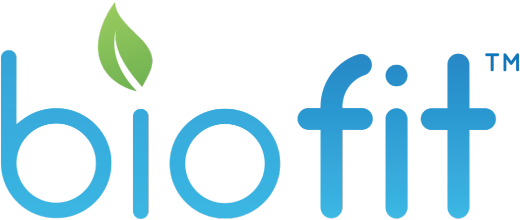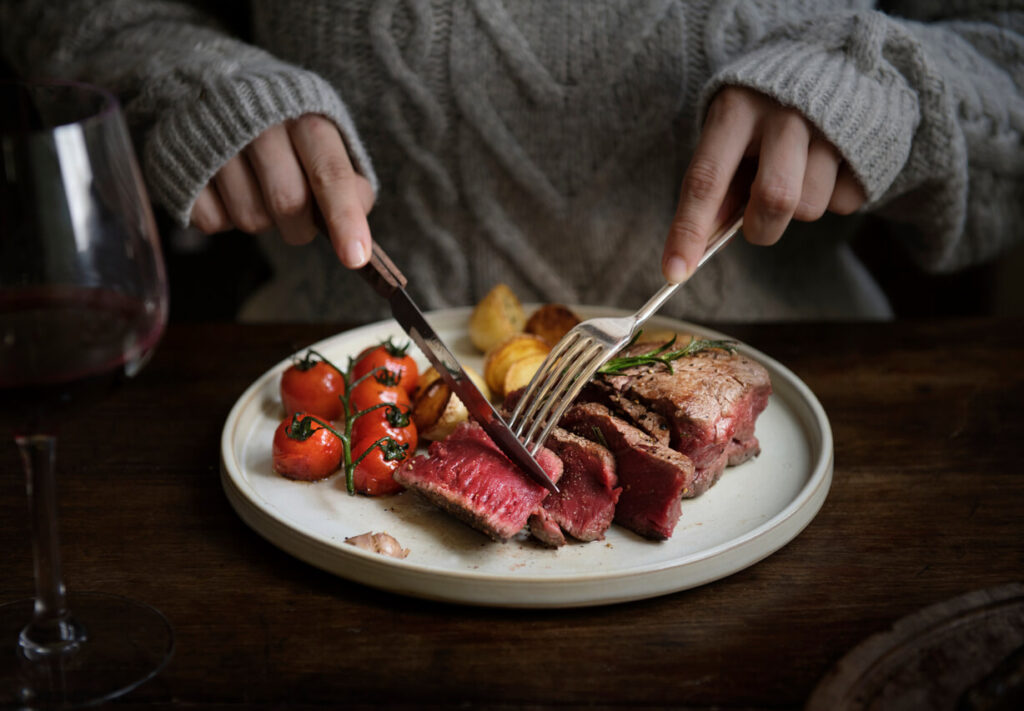There are a lot of controversial conversations on the effects of carbs and fat but nearly everyone agrees that protein is important. There are plenty of science back studies that prove that a high protein diet has many benefits especially in metabolic health and weight loss.
A high protein diet makes you feel full. Of the three macronutrients that we consume – fats, carbs, and proteins – protein is by far the most effective in reducing appetite and hunger with less food. This is because the protein molecule reduces your hunger hormone (called ghrelin) and raises the levels of your full molecule (peptide YY), which is a hormone that makes you feel full. The combination of the two effects is powerful. A study that was conducted on women that were overweight saw that they increased their protein intake from 15% to 30% made them consume an average of 441 calories less each day without even being aware of it or restricting anything else. If you need to lose weight or try to tackle that stubborn belly fat, consider replacing some of your carbs with hunger suppressing proteins instead. It can be as simple as making your potato side a little smaller and adding a couple more bites to your meat, chicken, or fish. The improved regulation of hunger control hormones will effectively reduce your hunger and your calorie intake.
A high protein diet increases your muscle mass. Since proteins are the building blocks of your muscles, then consuming more protein will not only maintain your muscle mass, it will increase it too. Many studies show that consuming more proteins promotes more muscle growth. If you want to be stronger, you need to be sure that you’re consuming enough protein. If you are also doing a weight loss program, it will prevent muscle loss that sometimes comes with weight loss.

A high protein diet is good for your bones. A myth that has been ongoing and circulating is that protein, namely animal protein, is bad for your bone health. Bone mass growth has been observed in long-term studies on a high protein diet and people who consume more of it tend to maintain better bone mass over time. People with better bone mass run a lower risk of osteoporosis and bone fractures. This is a particular consideration for women who are at a higher risk of osteoporosis particularly during menopause. Eating more protein and staying active is a great way to reduce the effects of osteoporosis. As we age, we can lower the risk of osteoporosis and fractures if we eat more protein and we can increase our overall bone health.
A high protein diet reduces late night snack cravings. A sudden food craving is very different from normal hunger. It is not just about giving your body what it needs to feel full, it is also about giving your brain a reward. Cravings are very hard to control. The best way to combat a craving is to try to prevent it from happening in the first place. A great prevention method is to increase your
protein intake throughout the day. I study in overweight men showed that a 25% increase in protein reduced cravings to 60% and late night snack cravings to 50%. Another study conducted on teenage girls that were overweight introduced a high-protein breakfast which reduced their cravings and late night cravings, too. It was observed that the improvement in the function of dopamine, the hormone responsible for cravings, was more regulated by higher protein diet. A high protein diet may reduce the desire for late night snacks and overall cravings. Even just by having a high-protein breakfast may have a powerful effect.
A protein diet can boost your metabolism. Your body uses calories to break down foods and digest it and make use of the nutrients in foods. This is called the thermic effect of food (TEF). Yet, not all foods are equal in their thermic effect. Actually, protein has a higher thermic effect than carbs or fat by about 20 to 30% compared to five or 15%. A high protein diet therefore increases the calories you burn and significantly increases and boosts metabolism to up to 100 more calories burned per day. Therefore a high protein diet can boost metabolism significantly and helps you burn more calories per day.
A high protein diet can lower your blood pressure. High blood pressure is the proven cause of heart attacks, strokes and kidney disease. It has been interestingly noted that a higher protein diet has been shown to lower blood pressure. A study has found that it not only eats in lowering blood pressure but it can also reduce LDL which is bad cholesterol and triglycerides. Several studies noted that high protein intake lowers blood pressure and other studies demonstrate lowering risk factors for heart disease.
A high protein intake makes you lose weight almost immediately. Due to the boost in metabolism and reduction in cravings and calorie intake, people tend to lose weight almost right away. However, losing weight is only one challenge, maintaining weight loss is another challenge. So moderate increase in protein will help you with maintaining your goal weight. So if you want to keep off that stubborn away and try to prevent it from coming back again, consider an increase in general protein intake for the long run.
A high-protein diet is not bad for your kidneys. This is only bad for people that already have kidney disease and increasing a protein intake for people with a pre-existing kidney condition can be very serious. For those of us that have no issues with our kidneys, there is no issue at all. In fact many studies have not been able to conclude any harmful effects on people that have no kidney diseases. So while protein can cause harm to people with pre-existing kidney issues it has essentially no effect on those who have healthy kidneys.
High protein diet helps your body repair itself after an injury. This makes total sense as proteins are the building blocks of our tissues and our organs organs. It is understood that proteins do repair your body after an injury. If you want to
speed up your recovery, you can eat more protein and it will reduce the healing time. Adding more protein to your diet will help you recover from injuries faster.
A high protein diet helps with aging. As we age, our muscles gradually become weaker. It is one of the consequences of aging. Sarcopenia, an age related disease, is one of the main causes of bone fractures, frailty and reduce the quality of life amongst older individuals. Having a higher protein diet is a great way to reduce aging issues such as muscle deterioration and to help prevent sarcopenia. Crucial that older individuals maintain physical activity and doing light weights or some sort of resistance exercise will greatly improve the quality of their lives.
Many are already practicing a diet that is high enough in protein levels. Even though having a higher protein intake is great and has many health benefits it may not be for everyone. Most people get the necessary amount of protein intake to stay healthy and it is more than enough to prevent any kind of protein deficiency. However, in many more cases, people do benefit from eating a high protein diet and has helped people lose weight, improve health, and gain muscle mass and strength just by adding more protein to their diets.

